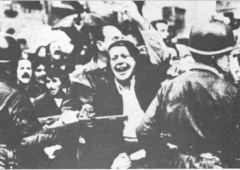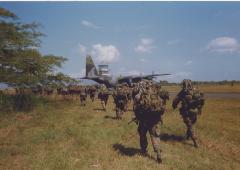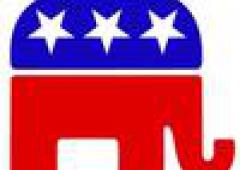Articles by: Greg Grandin
By 1979, much of the southern cone had fallen to right-wing military dictatorships in an era defined by militarist anti-communism, the defeat of the working class movement, and the emergence of neoliberalism. From our 50th anniversary issue, available open access for a limited time.
How unilateral, preemptory “regime change” became an acceptable foreign policy option, “democracy promotion” became a staple of defense strategy, and war became a branded public spectacle.
As Congress remains averse to compromise amidst fiscal cliffs and budget sequestration, we thought it is worth looking back at the 2012 election to see what the future holds for the Republican party.
In a bold move, the democratically elected president of Honduras Manuel Zelaya—ousted in a military coup in June—has returned to Tegucigalpa, entering the country in secret, traveling overland with a small group of advisers. He is currently in the Brazilian embassy, and crowds of supporters are gathering around the building to demand the restoration of Honduran democracy.
Barack Obama this week continues his administration's efforts to push the "reset" button on U.S. foreign relations attending the Summit of the Americas in Trinidad and Tobago. What if he had picked the Nation's Katrina vanden Heuvel or Democracy Now! anchor Amy Goodman to advise him at the upcoming Summit? Unlikely, to say the least, but 75 years ago President Franklin Delano Roosevelt did something just like that. As a result anti-imperialism saved the American empire.
 |
To get a sense of what Barack Obama’s foreign policy will be, we should watch Latin America. The region has long lived like the proverbial canary in a coal mine, a reliable indicator of what’s in store for the rest of the world when circumstances prompt Washington to shift diplomatic direction. There’s been much talk lately about Franklin Delano Roosevelt and the New Deal, some of it generated by Obama himself, who has cited FDR’s Four Freedoms—of speech and religion and from want and fear—to signal what his diplomatic priorities will be.
Naomi Klein is a Canadian journalist and regular contributor to The Nation and the London Guardian. Beginning with No Logo: Taking Aim at the Brand Bullies (1999), Klein’s work has explored the two major forces that have shaped the post–Cold War world: the extension of radical free-market capitalism and, after 9/11, the resurgence of imperial militarism. More than just investigating the excesses, abuses, and popular resistances to neoliberalism and war, Klein’s journalism consistently links them, exploring how the corporate globalism of the Clinton years flowed seamlessly into the neoconservatives’ preemptive warfare doctrine. Latin America was the first region where neoliberalism was imposed and the first to produce a sustained resistance movement to it.



